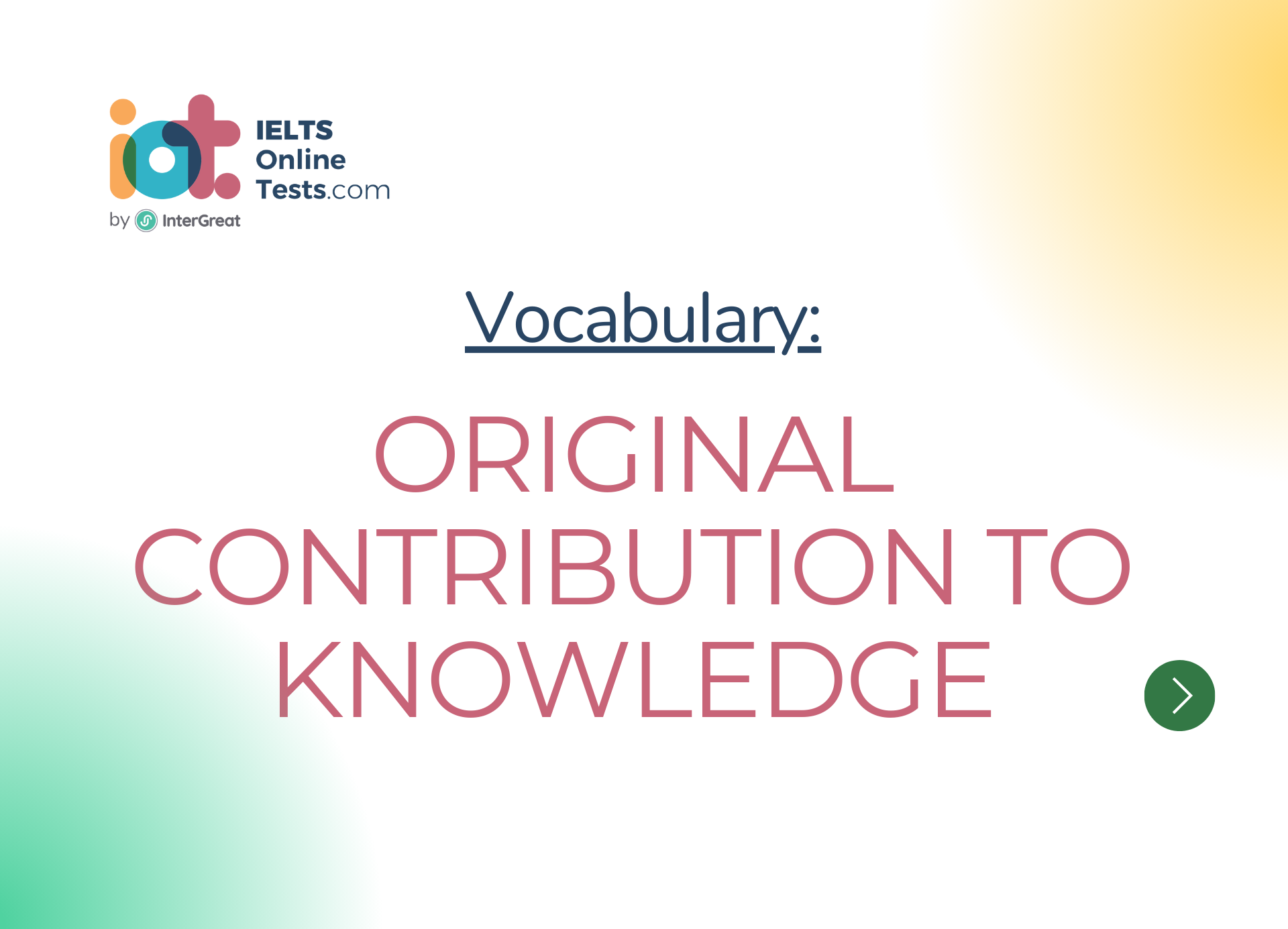
Original contribution to knowledge
In the context of IELTS band score range 6.5-8.0, you may come across advanced vocabulary related to the concept of "original contribution to knowledge." This term refers to the unique and significant impact a research project or academic work has on advancing existing knowledge in a particular field. Here is a comprehensive list of vocabulary words to help you better understand and discuss this topic:
Innovation:
Definition: Introducing new ideas, methods, or concepts that bring about significant advancements.
Example: The researcher's innovative approach led to an original contribution to the field of medicine.
Pioneering:
Definition: Being the first to explore and develop a new area of research or study.
Example: Her pioneering work in nanotechnology made a substantial original contribution to science.
Breakthrough:
Definition: A significant and revolutionary discovery that advances knowledge in a field.
Example: The scientist's breakthrough in renewable energy had a profound impact on the industry.
Groundbreaking:
Definition: Introducing new and unprecedented ideas or discoveries.
Example: The author's groundbreaking study on climate change received international recognition.
Novelty:
Definition: The quality of being new, original, or unique.
Example: The research findings presented a novelty in the field of artificial intelligence.
Advancement:
Definition: Progress or improvement in knowledge or understanding.
Example: Her work represents a significant advancement in our understanding of human behavior.
Originality:
Definition: The quality of being inventive and unique in research or creation.
Example: The artist's originality in painting captivated art enthusiasts worldwide.
Contribution:
Definition: An addition or improvement that makes a valuable impact.
Example: The scholar's contribution to the study of ancient civilizations was widely acclaimed.
Significance:
Definition: The importance or relevance of research findings in the context of existing knowledge.
Example: The study's findings had great significance in addressing public health issues.
Distinctiveness:
Definition: Uniqueness and difference from existing knowledge or works.
Example: The distinctive approach of the research led to an original contribution to the field.
Novel Approach:
Definition: A fresh and innovative way of approaching a research question.
Example: The scientist's novel approach to data analysis revealed groundbreaking insights.
Pathbreaking Research:
Definition: Research that opens up new paths and possibilities in a field.
Example: The team's pathbreaking research on artificial intelligence received prestigious awards.
Unprecedented Findings:
Definition: Findings that have never been reported or observed before.
Example: The study presented unprecedented findings in the realm of climate change.
Revolutionary Study:
Definition: A research study that brings about a significant change in current knowledge.
Example: The philosopher's revolutionary study challenged traditional notions of ethics.
Substantial Contribution:
Definition: A noteworthy and substantial addition to existing knowledge.
Example: The scholar's work made a substantial contribution to the field of literature.
Using these vocabulary words in your discussions and writing will demonstrate your ability to articulate the concept of "original contribution to knowledge" effectively and with precision. This will undoubtedly contribute to achieving a higher band score in the IELTS exam. Best of luck with your studies!




